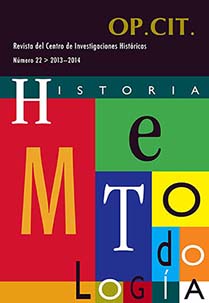Abstract
The article presents methodological strategies and theoretical frameworks that supported the study of court records dealing with interpersonal violence. It highlights the importance of the concept of "agency" for understanding late nineteenth century Puerto Rico legal and historical context. It also delves into the modernizing changes, the modern subjectivities formation, and the dynamics of cultural change, as well as on the alternatives available to common people in the legal sphere. It emphasizes the convergence of working class individuals‘ objectives, as registered in court records, and the modernizing currents of the time. The usefulness of gender category of analysis is also tested, as well as the possibilities of political and social contextual analysis.
URI: http://hdl.handle.net/11721/1018

